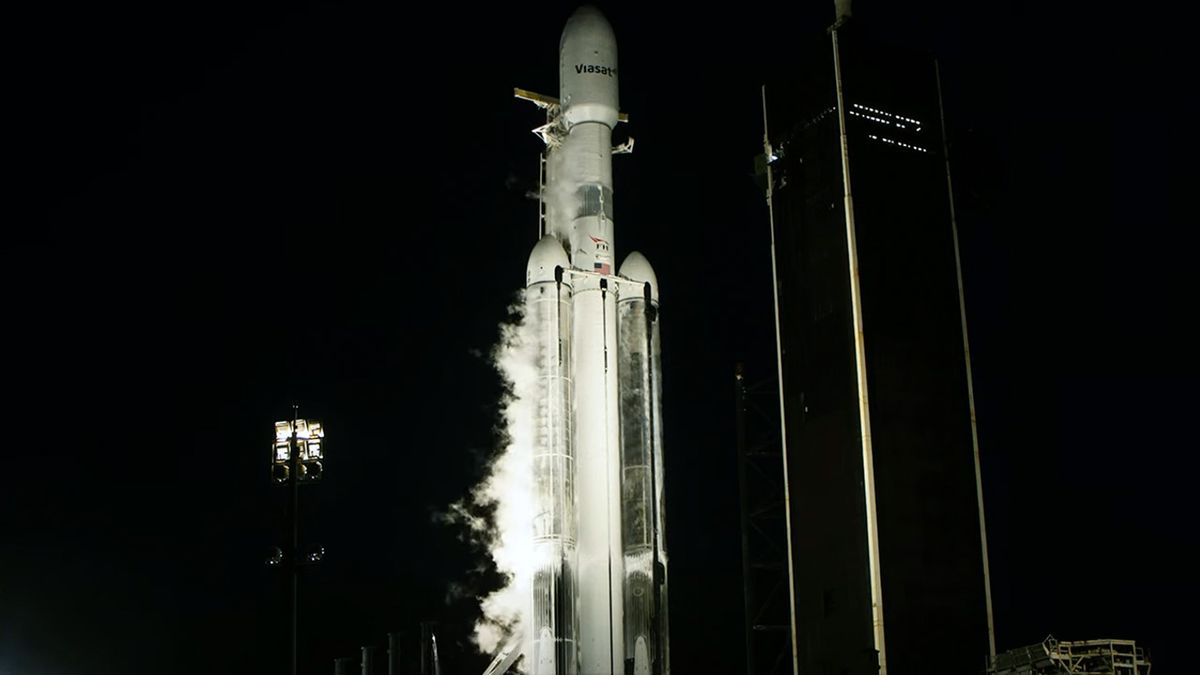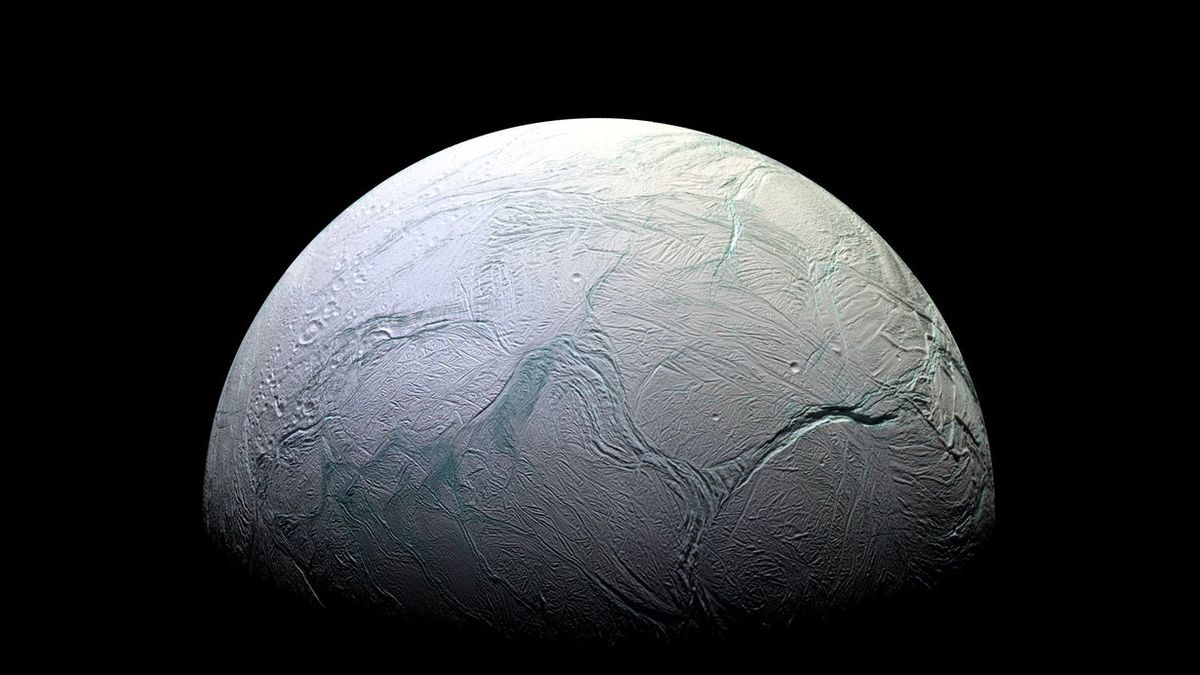A SpaceX Falcon Heavy rocket carrying three satellites aborted an attempted launch at the last minute late Friday (April 28).
The heavy-lift Falcon Heavy rocket was 59 seconds from lifting off at 8:26 p.m. EDT (0026 GMT) from Pad 39A of NASA’s Kennedy Space Center in Florida when SpaceX called an abort. The rocket was about to enter its startup phase, but did not ignite its 27 first-stage engines, nine each on its three core boosters. It’s unclear what caused the abort.
“We did call an abort at T-59 seconds. The vehicle and payload remain healthy,” SpaceX propulsion engineer Atticus Vadera said after the abort. “Keep in mind, the purpose of the countdown is to help us catch potential issues prior to flight. There are thousands of ways to launch a rocket and there’s only one way that it can go right.”
Related: When SpaceX’s 1st Falcon Heavy launched Elon Musk’s Tesla into space
SpaceX is now targeting Sunday, April 30, for its next Falcon Heavy launch attempt during a 57-minute window that opens at 7:29 p.m. EDT (2329 GMT). You can watch the liftoff live at Space.com, courtesy of SpaceX, or directly via the company (opens in new tab).
“Latest weather forecast shows an 80% chance of favorable conditions during Falcon Heavy’s launch window on Sunday,” SpaceX wrote in a Twitter update (opens in new tab) Saturday (April 29).
The upcoming Falcon Heavy launch will mark SpaceX’s sixth flight of the heavy-lift booster, which made its debut in 2018. For this mission, the rocket’s primary payload is ViaSat-3 Americas, a 14,000-pound (6,400 kilograms) satellite designed to offer broadband services for the California-based company Viasat.
The rocket is also carrying two smaller satellites: Arcturus, the first satellite built by the company Astranis, which is a small communications satellites; and the tiny communications cubesat GS-1 built by Gravity Space of Washington.
While Falcon Heavy rockets are designed to have reusable first stages that land, like their smaller Falcon 9 counterparts, SpaceX does not plan to reuse the core boosters from this mission in order to use the propellant normally reserved for landing to deliver its massive payload into orbit.
Tariq Malik is the Editor-in-Chief of Space.com. Follow him on Twitter @tariqjmalik. Follow us on Twitter @Spacedotcom or Facebook.














